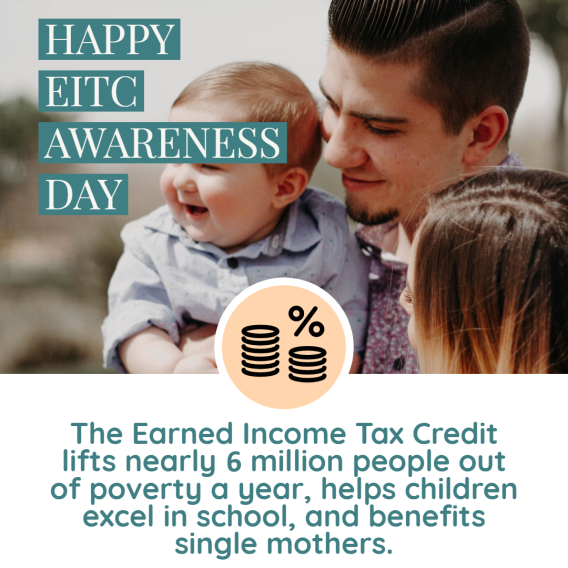This lookback rule is for tax year 2020 and 2021 tax returns only. If you were eligible for the Earned income Tax Credit (EITC) in 2020 or 2021 and didn’t claim it, it’s not too late. You can file your taxes for free at GetYourRefund.org, starting January 31, 2024.
To support economic relief from the COVID-19 pandemic, Congress passed a new ‘lookback rule’ which means if you earned less in 2020 or 2021, you can use either your 2019 income on your taxes if it helps gets you more money back.
File a tax return to see if you can get more money back this tax season using the ‘lookback rule’.
How does the Lookback work?
The Earned Income Tax Credit (EITC) and Additional Child Tax Credit (ACTC) are credits that lower your taxes and can give you a tax refund. You can claim the credits whether you’re single or married. The EITC is available for people with and without children (see EITC eligibility) even if you don’t owe taxes.
For Tax Year 2020 and Tax Year 2021, if you earned more in 2019, you can “lookback” to use your 2019 income when claiming the EITC on your taxes.
Without the lookback option, many would be eligible for smaller tax credits or not qualify at all. This could be from receiving unemployment (which doesn’t count as earned income for the EITC), losing a job, or earning less money in 2020 or 2021.
Without the lookback option, many would be eligible for smaller tax credits or not qualify at all. This could be from receiving unemployment (which doesn’t count as earned income for the EITC), losing a job, or earning less money in 2020.
If you’ve gotten the EITC in the past and are unsure of what to expect because of employment changes, don’t worry! You may still be eligible for a sizeable refund with the lookback option.
How do I know which year’s income to use?
For the lookback, you’ll first need to know your total earned income – not Adjusted Gross Income (AGI) – from 2019 and the year you’re filing taxes. We’ll assume you’re filing 2021 taxes. If you earned less in 2021 than in 2019, then you can choose which income to use. If your 2021 earnings were higher than in 2019, you must use your 2021 income.
Earned income (not Adjusted Gross Income – AGI) can be from wages, salary, tips, employer-based disability, self-employment income, military pay, or union strike benefits. It does not include unemployment insurance.
Once you have both figures, it is best to find professional tax help. Depending on your financial situation, the lookback may be complex to calculate. This is especially true if you received unemployment insurance in 2019 or 2021 or if you had self-employment earnings during either year.
There are many options available to file for free! If you are filing your own taxes, the EITC Estimator can be a starting point to help assess whether the lookback is a good option for you.
What other tax benefits should I look out for?
If you didn’t get your stimulus checks, you can still claim them as tax credits. Read about the Recovery Rebate Credit.
Where can I get tax help?
Every dollar counts. Use free tax help to maximize your hard-earned dollars and keep more of your money in your pocket. Have your 2019 tax return available when you do your taxes this year to make it easier.
If you need free help claiming your EITC and ACTC, you can:
- Visit Code for America’s Get Your Refund website to connect with an IRS-certified volunteer that can virtually help you file your taxes for free.
- Contact your local Volunteer Income Tax Assistance (VITA) or AARP Foundation’s Tax-Aide site to get free tax help from an IRS-certified volunteer.
If you don’t qualify for free tax help through these services, you can file your own taxes for free using MyFreeTaxes.com. Support is available through online chat.
The deadline to file your taxes this year is April 18, 2022.








